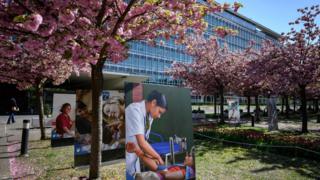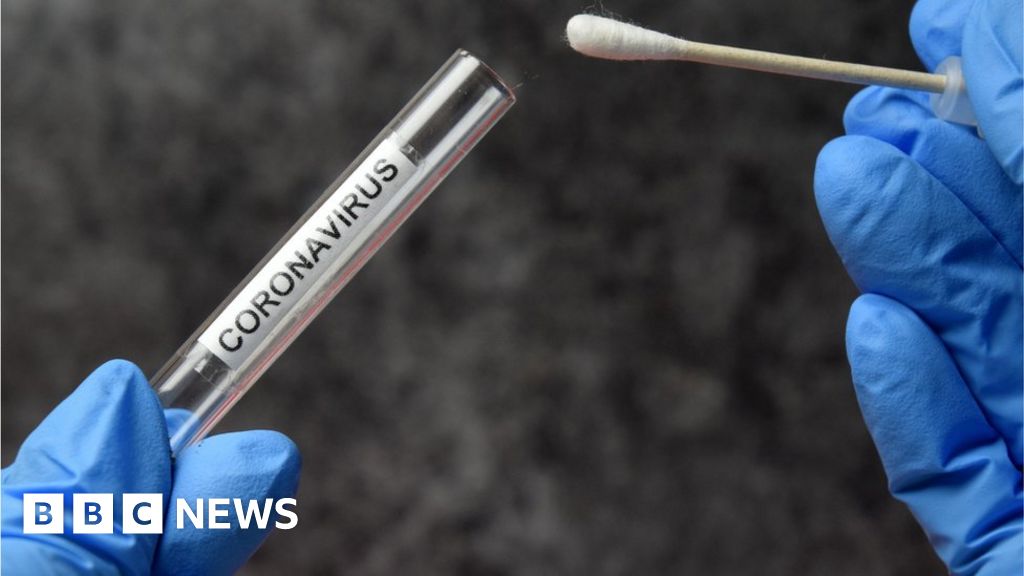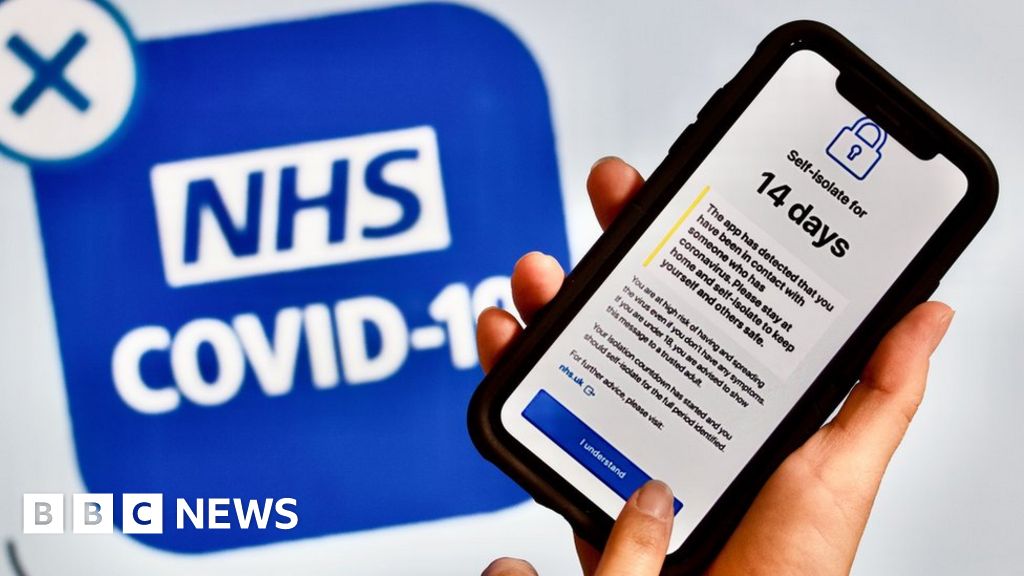 Image copyright
AFP
Image caption
The WHO headquarters in Geneva
Image copyright
AFP
Image caption
The WHO headquarters in Geneva
President Donald Trump has said he is going to halt US funding to the World Health Organization (WHO) because it had "failed in its basic duty" in its response to the coronavirus outbreak.
But what is the WHO and what does it do?
It's the global health HQ
A wash of colour overhead greets anyone entering the WHO headquarters in Geneva where the 194 flags of the organisation's member states drape from the ceiling as - on sunny days, at least - beams of light flood the large open atrium.
This is from where the global response to what's been described as "the greatest test to the world since World War Two"- is being co-ordinated.
The UN agency was founded in 1948, and describes itself as the "global guardian of public health".
Its stated goal is to ensure "the highest attainable level of health for all people".
It's a big job.
Over the last 11 years, it has overseen the global response to six international health emergencies, including the Ebola outbreak in west Africa in 2014, the Zika outbreak in 2016 and - right now - the Covid-19 pandemic.
It also
decides when to sound the "global alarm" during outbreaks sets up worldwide research and development plans aimed at fast-tracking new treatments and vaccines sends experts into the epicentres of disease in order to gather data on what works and what doesn'tThe WHO also has responsibility for a wide range of other health issues, including
tackling the global obesity and diabetes epidemics reducing deaths on the roads wiping out vaccine-preventable diseases, such as polio working to reduce the number of mothers and babies who die during childbirth.But - and it's a big but - the WHO is an advisory-only body. It can make recommendations to countries on what to do to improve the health of its citizens and prevent the outbreak of disease, but it can't enforce those recommendations.
Has the WHO mishandled this pandemic?
It depends on who you ask.
If you ask Donald Trump, the answer is a resounding yes.
But Mr Trump himself is facing withering criticism of how he has dealt with the outbreak in the US - which now has more than 600,000 cases and 26,000 deaths.
He also has a bigger geopolitical fight with China, which far precedes Covid-19.
However, the US leader is certainly not the first to criticise the WHO for its effusive praise of China's response to the outbreak which continued even while others - including medics in the country - described how their early concerns about the virus were silenced by the authorities.
Dr Tedros Adhanom Ghebreyesus, director general of the WHO, has repeatedly said he stands by his praise of China.
He says its response helped slow the spread of the virus internationally, buying other countries time to prepare for what was coming.
And he, along with many other scientists, points out that China voluntarily shared the genetic code of the virus very quickly, allowing countries to start making diagnostic tests and working on vaccines.
However, there has also been widespread criticism of the country's response.
Devi Sridhar, professor of global public health at the University of Edinburgh, said: "China didn't do a great job of telling the world [about the early stages of the outbreak] and it's clear there were delays.
"They tried to downplay this in the early days."
Prof Sridhar investigated the WHO's much-criticised response to the west Africa Ebola epidemic, and describes herself as one of the WHO's "harshest critics".
But she added: "It's hard to fault a lot of what the WHO has been trying to do, given the difficult balancing act of trying to get countries to address this epidemic and take it seriously, while also trying to keep all countries at the table."
A major part of the WHO's role is diplomacy. Because it can't force countries to share information about outbreaks, it relies on nations themselves coming forward.
Prof Sridhar said the organisation could have got its "five minutes of fame" around the world if Dr Tedros had issued a strong condemnation of China, she says, but that could have hampered the global response to Covid-19.
"What would that have achieved? He still needs to go back a week later and ask China to share data."
She believes the WHO did put pressure on China to be more up-front in the early days of the outbreak - but that it did so behind the scenes.
"I think there's a big difference in diplomacy, between doing things publicly with the media - which is often just a performance, to make a posture - and to do things privately and actually advocate and get things moving."
What happened in previous outbreaks?
This isn't the first time the WHO has faced criticism.
Image copyright Getty Images Image caption The WHO was criticised for its "slow" response to the outbreak of Ebola in west AfricaThe UN agency was deemed to be slow to respond to the 2014 Ebola outbreak, declaring an international emergency only five months after the virus was first identified in Guinea.
But in 2009, it was accused of the opposite - being quick to over-react on the H1N1 swine-flu outbreak, and unnecessarily declaring a global pandemic.
Last week, when President Trump floated the idea of withholding funding to the WHO, Dr Tedros called for countries not to "politicise this virus."
He also said he welcomed a review of the WHO's response to the outbreak because "we want to learn from our mistakes, from our strengths and move forward".
But he said the focus now should be on "fighting this virus".
What impact could President Trump's move have?
The US is the biggest single donor to the WHO, which relies on a combination of members' fees - based on wealth and population - and voluntary contributions.
Those voluntary donations make up most of the agency's $2.2bn (£1.75bn) annual budget.
Last year the US gave more than $400m.
Dr Jeremy Farrar, director of the UK's Wellcome Trust, said the WHO needs "more resources, not less" to tackle the pandemic.
"We are facing the greatest challenge of our lifetime. No other organisation can do what they do.
"This is a time for solidarity, not division."
And Prof Sridhar said the US was "cutting off its nose to spite its face".
"If WHO is hampered by this - its ability to respond to Covid, but also to malaria, and TB and polio is hampered, too - we're going to see the resurgence of all kinds of diseases that we thought were in the past."

 5 years ago
951
5 years ago
951 

